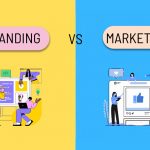Today’s illiterate are not people who can’t read and write, but rather those who can’t learn, unlearn, and relearn in the context of the modern world. And this is the same kind of thinking that underpins the advertising industry. In order to learn something new and significant in advertising, one must first forget what they already know. A brand should be interested in the tale told by your commercial as it develops across all points of contact with the customer. However, advertising and marketing are forms of art; you need a clean slate and a clear head to start, and then you need to fill it in by creating a compelling image that will inspire consumers to seek out and buy your product.
It’s a struggle for any brand today to find the optimal platform from which to fire their marketing cannons with pinpoint accuracy. The best place to learn about a lion’s hunting techniques is the jungle, not a zoo. Trying to figure out what to do is a hassle.
Given the demographics of the target market:
Both sites have a sizable user base, which allows them to effectively spread their message to a large demographic. Compare Mark’s 1.73 billion active Facebook members to Google’s 5.8 billion daily searches. Asking yourself whether your product is more search- or social-media-centric and figuring out who you’re trying to sell to can help you zero in on the best platform for your business. But Facebook shines because even while Google processes 5.8 billion queries each day, those searches aren’t tailored to you personally, but Facebook’s person-to-person advertising model allows it to customise to each user’s account.
From a financial and return-on-investment standpoint:
From a cost-per-click perspective, Facebook comes in just below Google. Facebook’s cost per click is $3.77, lower than Google’s $6.35. Google advertisements are more effective at reaching users at the time they are ready to make a purchase than Facebook ads. Cost per action (CPA) is another consideration, and Facebook is less expensive than Google on average (at $18.68) in this case.
Rate of conversion and creation of new leads:
Google is not a search engine but rather a way of thinking and an alternate to the traditional method of searching the Internet. Google always comes out on top when pitted against Facebook when it comes to greater conversion rates because it is the first stop for anyone looking to buy an air conditioner. The vast majority of Facebook users get on to chat with friends and unwind. People rarely look for ACs in Facebook searches. Unlike Google, which is known for rapid conversions and leads, it may be used to cultivate a targeted audience and community.
Increased customer commitment and familiarity with your brand:
As a katana for marketing and customer loyalty, Facebook is indispensable. Facebook allows its members to get together in more unique and interesting ways. Brands can simply implement hypodermic-needle methods by employing visually arresting campaigns that encourage thought leadership. Facebook’s ad system is superior because of the way its advertisements may be linked to one another and shared with their audiences. Google’s functionality is restricted to search, so while you can improve your conversion rates, you won’t be able to sway your audience with loyalty programmes.
Which is preferable?
Have you ever questioned why burgers and fries go so well together? simply because one can never go wrong by opting for the pairing. As we look at the big picture, we can see that each of these platforms has a unique strategy. Although neither is without flaw, they complement each other wonderfully. In the same way that raising your brand’s profile can improve your business’s performance and projections, increasing the number of leads and percentage of conversions can do the same.





